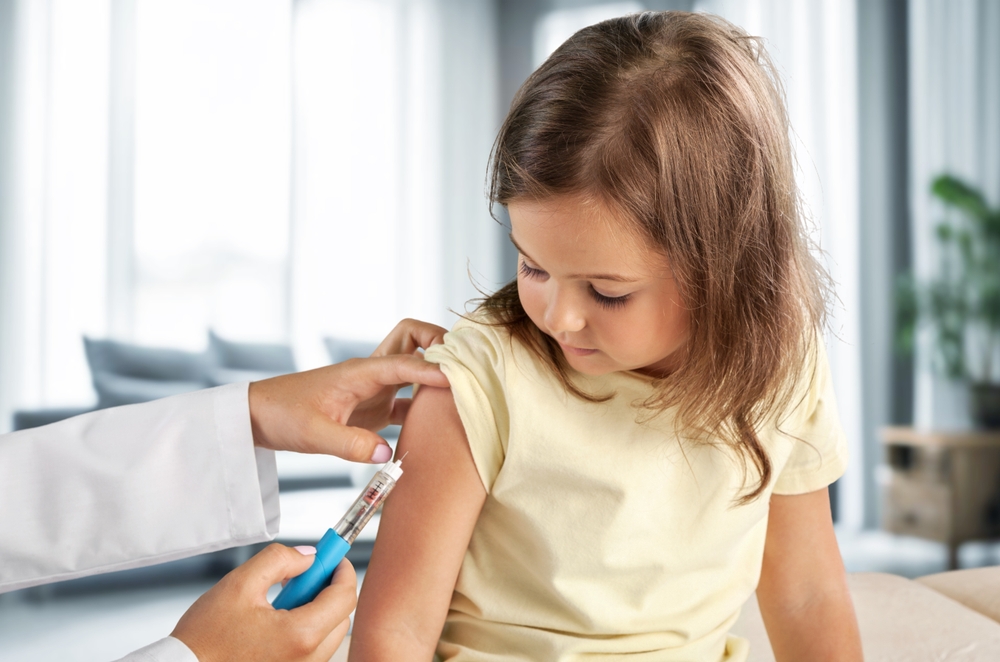
Following an outbreak of measles and whooping cough across the country, parents and carers are being reminded by Warwickshire County Council to check their children are up to date with immunisations.
In recent years vaccination rates have fallen, leaving many children vulnerable to serious and preventable diseases. In 2024, England saw a sharp rise in measles cases, with further outbreaks also taking place into the start of 2025.
As children settle back into school and nursery for the autumn term, the UKHSA is warning that unvaccinated children are at risk of infection. Diseases such as measles, mumps, rubella, and whooping cough spread rapidly in educational settings, especially among those who are not protected.
Councillor Anne Marie Sonko, Portfolio Holder for Adult Social Care and Health said: “With the start of autumn term, now is the best time to book in with your GP for your child’s immunisations. Whether they attend a nursery or high school setting, the proximity of many children being together means that there is an increased risk of infection.”
She adds: “Vaccinations for children are free and vital to preventing serious illness and hospitalisation. Please check your child’s immunisation history to ensure it’s up to date. If doses have already been missed there is still the opportunity to catch up, please contact your GP for details.”
Vaccine-preventable diseases can affect all-ages of children. For babies and toddlers, they can be vulnerable to illnesses such as meningitis, septicaemia, measles and whooping cough, which can lead to hospitalisation, brain damage, or death. These diseases often progress rapidly and can be fatal without early intervention.
School-aged children can be exposed to highly contagious diseases such as measles, mumps and rubella, especially in classrooms and playground settings. Measles alone can cause serious complications including encephalitis (brain inflammation), pneumonia, and long-term disabilities. Older children and teenagers may also require booster vaccines to maintain their immunity against diseases like tetanus, diphtheria, polio and Human Papillomavirus (HPV), which protects against cancers and genital warts.
Vaccinations not only protect individual children, but also help to prevent outbreaks and more importantly, protect those who are medically unable to receive vaccines and babies who are too young to be vaccinated. All childhood vaccines offered by the NHS have an excellent safety record and prevent over 5,000 deaths annually.
To check the NHS vaccination schedule and to find out what age a child should have each vaccine, visit www.nhs.uk/childhoodvaccinations
For more information about vaccinations, visit www.warwickshire.gov.uk/homepage/468/vaccinations